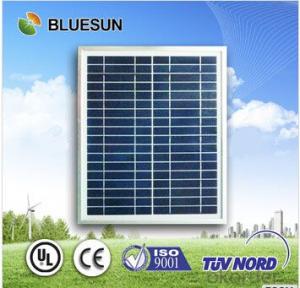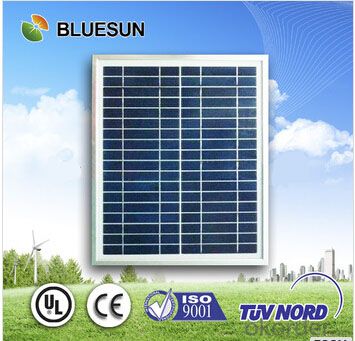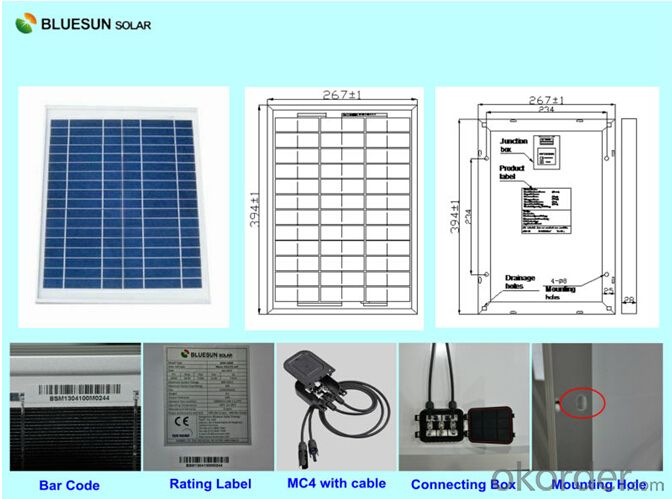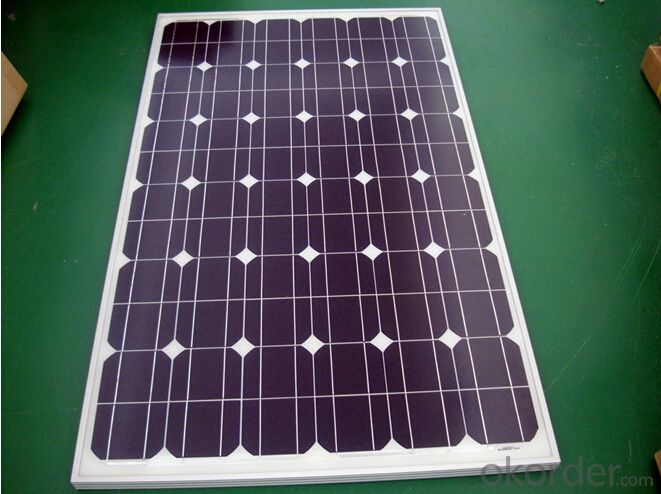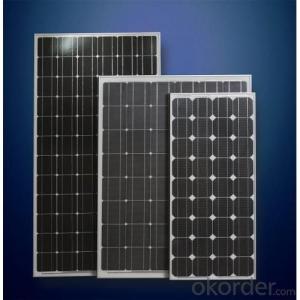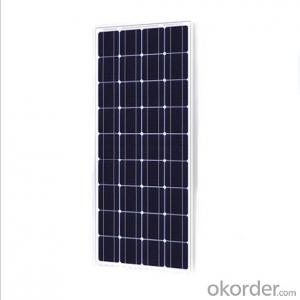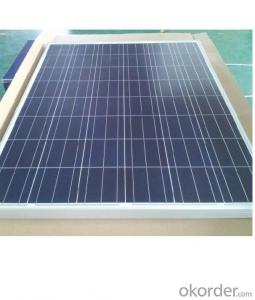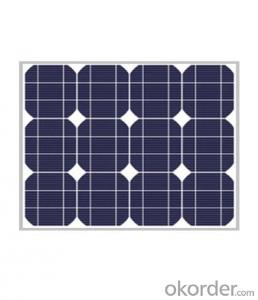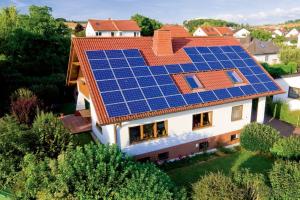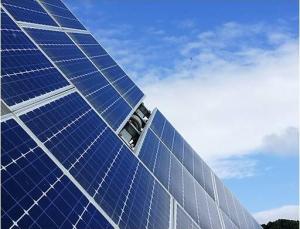Solar Panels Louisville Ky - Polycrystalline Silicon Solar Modules 20watt
- Loading Port:
- Shanghai
- Payment Terms:
- TT or LC
- Min Order Qty:
- 200 watt
- Supply Capability:
- 3000000 watt/month
OKorder Service Pledge
OKorder Financial Service
You Might Also Like
Polycrystalline Silicon Solar Modules 20WattPoly-Crystalline Module, Poly 156 cell, 36pcs.Power 20w panel.
1. Main Features of the Polycrystalline Silicon Solar Modules 20Watt Description
Warranties
1. 10 years limited product warranty
2. 15 years at 90% of the minimal rated power output
3. 25 years at 80% of the minimal rated power output
2. Polycrystalline Silicon Solar Modules 20Watt Specification
| poly156cell, 20w poly | |||||
| Maximum Power(W) | 20w | ||||
| Optimum Power Voltage(Vmp) | 17.2v | ||||
| Optimum Operatige Current(Imp) | 1.17A | ||||
| Open Circuit Voltage(Voc) | 21.8V | ||||
| Short Circuit Current(Isc) | 1.23A | ||||
| Solar Cell | 156*156mm Poly | ||||
| Number of Cell(pcs) | 36 (2*18) | ||||
| Brand Name of Solar Cells | JA Cell, Bluesun Cell | ||||
| Size of Module(mm) | 505mm*353mm*28mm | ||||
| Cable & Connector Type | Pass the TUV Certificate | ||||
| Frame(Material Corners,etc.) | Anodized aluminium-alloy | ||||
| Back sheet | TPT | ||||
| Cell Efficiency(%) | 13.8 | ||||
| Weight Per Piece(KG) | 2.25KG | ||||
| FF (%) | 70-76% | ||||
| Junction Box Type | IP65 PV junction box | ||||
| Tolerance Wattage(e.g.+/-5%) | 0~3% | ||||
| Front Glass Thikness(mm) | 3.2 | ||||
| Temperature Coefficients of Isc(%) | +0.035%/K | ||||
| Temperature Coefficients of Voc(%) | -0.351%/K | ||||
| Temperature Coefficients of Pm(%) | -0.47%/K | ||||
| Temperature Coefficients of Im(%) | 0.04 | ||||
| Temperature Coefficients of Vm(%) | -0.38 | ||||
| Temperature Range | -40°C to +85°C | ||||
| Surface Maximum Load Capacity | 2400Pa | ||||
| Allowable Hail Load | 23m/s ,7.53g | ||||
| Bypass Diode Rating(A) | 12 | ||||
| Warranty | 100% of 10 years, 80% of 25 years. | ||||
| Standard Test Conditions | AM1.5 1000W/m² 25 +/-2°C | ||||
| Packing | carton or pallet | ||||
3. Detail picture of Polycrystalline Silicon Solar Modules 20Watt
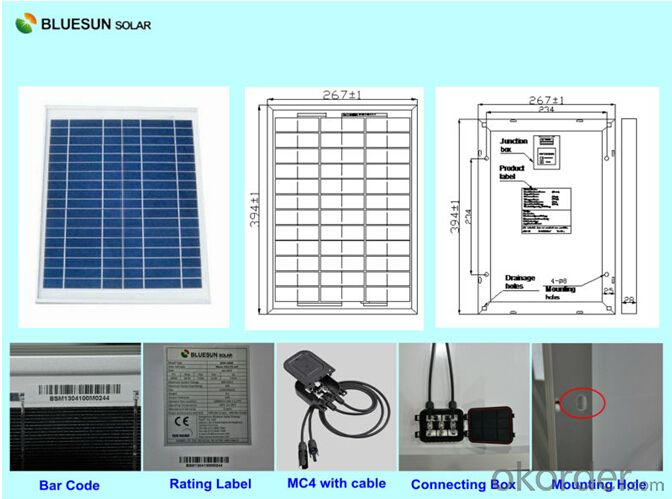
4. Certificate of Polycrystalline Silicon Solar Modules 20Watt
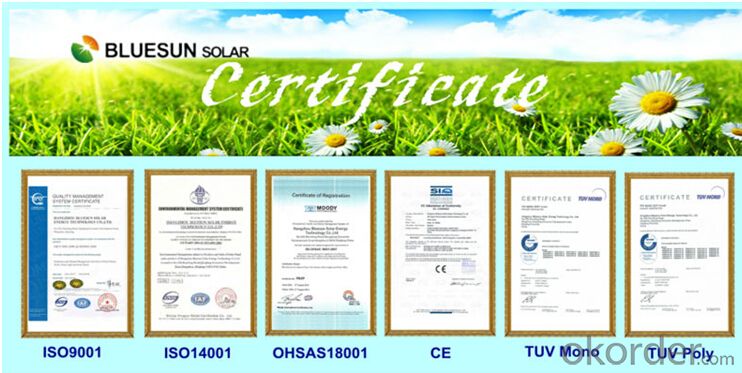
- Q: Can solar panels be recycled? What about the manufacturing of these panels is it done in an Eco-friendly way?
- there okorder /
- Q: The Physics club in our school is trying to convince the Board of Ed to install solar panels in our school, and i was just wondering if anyone with some experience or real expertise in solar energy. I need some points about their usefulness some real pros and cons on maintenance, etc. Anything will help. Personally i would be perfectly for the idea, but i heard that the overall cost of installing them is much higher than the cost of the energy saved and government subsidies, but ive only heard about this.
- Cuts Costs over time
- Q: Making a solar panelI know there was a recommended wattage for the soldering iron but i cant rememberdoes anyone know?
- How To Solder Solar Cells
- Q: Can solar panels be installed on water pumps?
- Yes, solar panels can be installed on water pumps. Solar-powered water pumps are becoming increasingly popular and are a sustainable solution for providing water in remote areas or off-grid locations. These pumps use solar energy to power their operation, making them environmentally friendly and cost-effective in the long run.
- Q: Can solar panels be used in areas with high levels of salinity or brackish water?
- Yes, solar panels can be used in areas with high levels of salinity or brackish water. The materials used in modern solar panels are designed to withstand various environmental conditions, including exposure to saltwater. However, regular maintenance and cleaning may be required to prevent the buildup of salt deposits on the panels, which can reduce their efficiency.
- Q: Installing solar panels requires a big initial investment. Before I make this investment I want to check to see if the money I will save by installing solar panels will actually pay for this investment, in the long run. To calculate my savings, we should consider the area (square feet) I currently have available to install solar panels. Look at the available sunlight and its intensity in my state each month of the year. Based on this data estimate how much energy my solar panel will generate. Then compare that with how much energy (kWh) I currently consume based on my electricity bill.
- SIMPLE, EASY WAY TO KNOW EXACTLY HOW MUCH IT WILL COST. Everyone has great answers, but here is a website that will do all the thinking for you. Go to: mercator.nrel /imby All you have to do is to locate your property on the map, draw the outline of the solar array, and then click Run. It will estimate: - Cost - Available Rebates - Tax Credits - Estimated payback This program is operated by the National Renewable Energy Laboratory. Good luck!
- Q: I want to get definate instructions on how to make the components and convert my home to solar energy. I know I could hire some one to do this, but frankly I do not have the funds at my disposal to do it. I thought if I could find detailed instuctions I could slowly do it myself (with my husband's help). I have looked into loans for this purpose to no avail. Finding the information on the net could take forever! If anyone knows a site that would give me the information or even a hint on how to start? Any help will be appreciated, but if you have any good links to good information please share them with me..Thanks
- I doubt that you are going to want to learn how to dope your own silicon wafers, add contacts and laminate them into PV panels.? I also doubt that you're going to even want the various chemicals to make e.g. cadmium-based cells anywhere near your house (cadmium is a very toxic metal).? In other words, making your own solar panels is not an at-home project. You can buy solar panels based on cells of several different types.? A link to a Pricewatch-like website for current prices on solar panels is below.? Mounting panels to roofs or pole mounts, running conduit and wires, and installing battery banks and inverters are within the capabilities of skilled laypeople. More data at the links. Edit:? I am reporting all of Agua-Luna's cut-and-paste pieces as spam.? I encourage others to do likewise.
- Q: I have just made my first dolar panel 20 watts, charges my 27TMX Trojan battery perfectly. Now I am thinking to build more solar panels for a grid tie installation at my house, maybe 5 panels would do it, is this safe?
- Congratulations on your solar panel. It takes a lot of work to construct one. Tying to the electric grid requires permission from your power company, and conformance to local building codes. This generally means compliance with the National Electrical Code (NEC), meaning your panels must be UL (or similar rating from another standard) listed, for fire and electrical safety reasons. Homemade panels won't qualify, unfortunately. I really would discourage you from trying to do a jungle installation without permission, as the power distribution in a house is nothing to be trifled with. That would also likely void your homeowner's insurance, and give the bank a reason to call your mortgage, if you have these.
- Q: I want to put a solar panel(s) on my roof. What components do I need besides the solar panels? solar power controller? wires? How do I hook it into my home's electrical system and about how much electricity could I generate and save? Would the panels pay for themselves over time? Any help will be appreciated. Thank you!
- solar panels are VERY heavy and can be very complicated, youll need a professional. your roof may need to be reinforced to handle the weight added. some states like Arizona will pay for the system for you.you could use solar power to heat the water in the house and everything else off the power company. if you do, get one with a glycol heat transfer solution. they heat more efficiently.
- Q: I am currently building a house, iv designed it to be as self sustainable as possible, I'm in the process of installing solar panels but as I'm ordering online I was hoping someone here could tell me how many I would need to completely run a 5 bedroom home, just standard household appliances such as fridge and freezers, plasma tvs computers and of course lighting, various things like that, also I'll need power storage as well, some type of large rechargeable battery, any help would be great.
- A typical home in America can use either electricity or gas to provide heat -- heat for the house, the hot water, the clothes dryer and the stove/oven. If you were to power a house with solar electricity, you would certainly use gas appliances because solar electricity is so expensive. This means that what you would be powering with solar electricity are things like the refrigerator, the lights, the compute?r, the TV, stereo equipment, motors in things like furnace fans and the washer, etc. Let's say that all of those things average out to 600 watts on average. Over the course of 24 hours, you need 600 watts * 24 hours = 4,400 watt-hours per day. From our calculations and assumptions abo?ve, we know that a solar panel can generate 70 milliwatts per square inch * 5 hours = 350 milliwatt hours per day. Therefore you need about 4,000 square inches of solar panel for the house. That's a solar panel that measures about 285 square feet (about 26 square meters). That would cost around $6,000 right now. Then, because the sun only shines part of the time, you would need to purchase a battery bank, an inverter, etc., and that often doubles the cost of the installation. If you want to have a small room air conditioner in your bedroom, double everything.
Send your message to us
Solar Panels Louisville Ky - Polycrystalline Silicon Solar Modules 20watt
- Loading Port:
- Shanghai
- Payment Terms:
- TT or LC
- Min Order Qty:
- 200 watt
- Supply Capability:
- 3000000 watt/month
OKorder Service Pledge
OKorder Financial Service
Similar products
Hot products
Hot Searches
Related keywords
